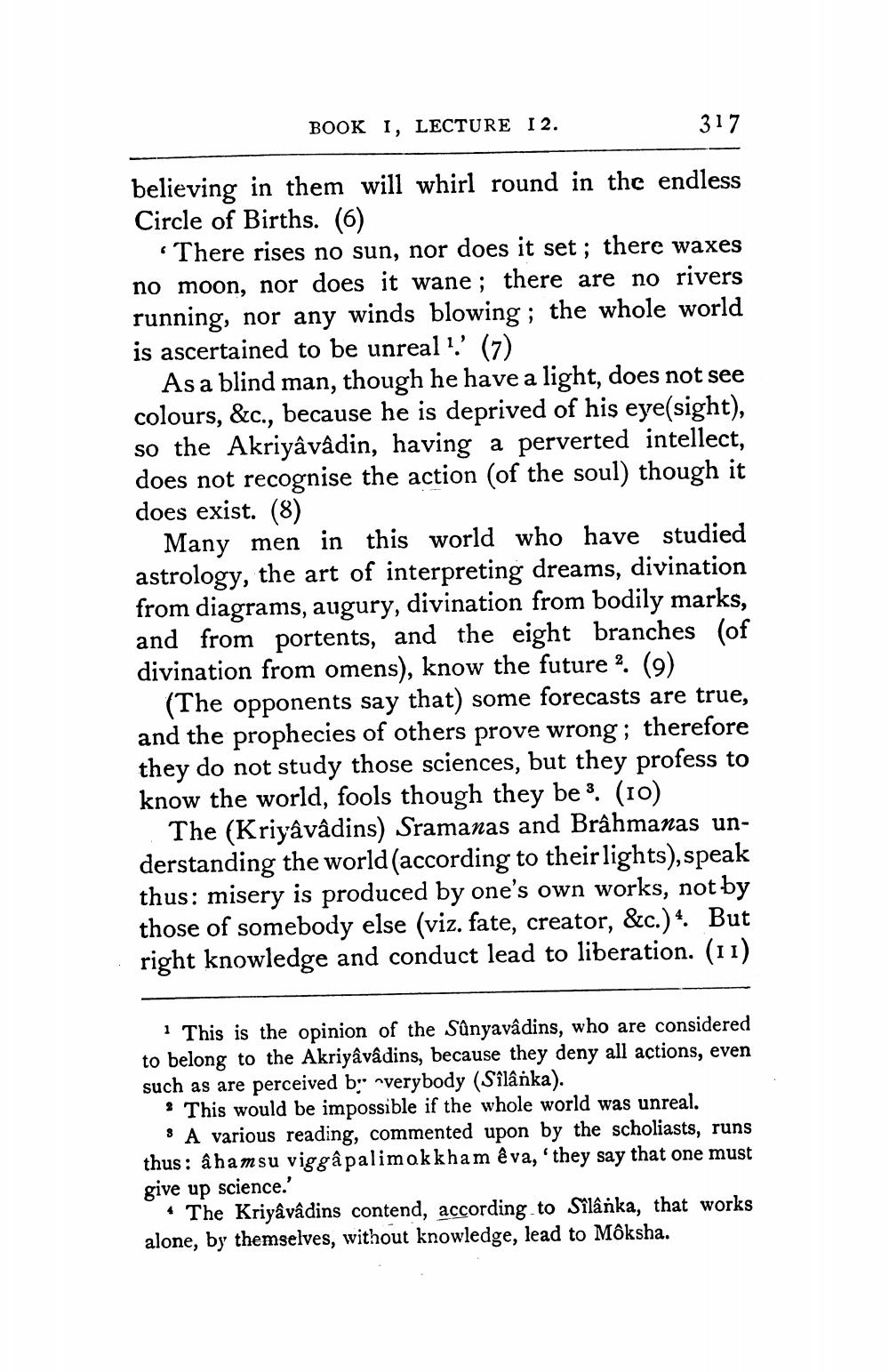________________
BOOK I, LECTURE 12.
317
believing in them will whirl round in the endless Circle of Births. (6)
• There rises no sun, nor does it set; there waxes no moon, nor does it wane; there are no rivers running, nor any winds blowing; the whole world is ascertained to be unreal ?.' (7)
As a blind man, though he have a light, does not see colours, &c., because he is deprived of his eye(sight), so the Akriyâvâdin, having a perverted intellect, does not recognise the action (of the soul) though it does exist. (8)
Many men in this world who have studied astrology, the art of interpreting dreams, divination from diagrams, augury, divination from bodily marks, and from portents, and the eight branches (of divination from omens), know the future 2 (9)
(The opponents say that) some forecasts are true, and the prophecies of others prove wrong; therefore they do not study those sciences, but they profess to know the world, fools though they be 3. (10)
The (Kriyâvâdins) Sramanas and Brâhmanas understanding the world (according to their lights), speak thus: misery is produced by one's own works, not by those of somebody else (viz. fate, creator, &c.)4 But right knowledge and conduct lead to liberation. (11)
This is the opinion of the Sânyavâdins, who are considered to belong to the Akriyâvâdins, because they deny all actions, even such as are perceived by averybody (Sîlâńka).
. This would be impossible if the whole world was unreal.
8 A various reading, commented upon by the scholiasts, runs thus : â hamsu vig gâpalimokkham êva, 'they say that one must give up science.
4 The Kriyâvâdins contend, according to Sîlânka, that works alone, by themselves, without knowledge, lead to Móksha.




